"What are the best supplements for gut health?”
If you've ever seen those yogurt adverts on TV remind you that they've got the "good bacteria" your gut needs, you've probably wondered how bacteria can actually be "good"?

When your gut ecosystem gets polluted or disturbed, you may experience some tell-tale signs:
1. An upset stomach.
2. Unexpected weight changes
3. Fatigue & insomnia
4. Eczema & skin problems
This imbalance in gut biome can often be caused by a high-sugar diet and other deficiencies.
For example, the BBC lists the importance of eating:
1. Plant based foods.
Pick up some fruit, veg and salad every single day. 5-a-day isn't just a catchy phrase, it's scientifically valid. It was also found that a Vegetarian diet can help to regulate gut bacteria (1), especially helping those with metabolic diseases and obesity. A great way to boost your plant-based intake is Peak Supps Supergreens.
2. Fibre.
Fibre is proven to help promote the growth of good bacteria, and to limit the growth of harmful bacteria (2). Fibre can be found in a diet rich in high-fibre foods such as apples, artichokes, blueberries, chickpeas, lentils, peas and beans.You may notice that suddenly adding fibre to your diet may cause wind and bloating, but this is normal and can be fixed by gradually eating more fibre rather than all at once, and drinking extra water.
3. Probiotics
That yogurt you've seen everywhere might just encourage more microbes to grow in your gut.
4. Extra-virgin olive oil.
Dietitians recommend extra-virgin olive oil over other fats, as it contains the highest concentration of microbe-friendly "polyphenols", basically, anti-oxidants that can only be digested by gut bacteria. Polyphenols are associated with a variety of benefits including reducing blood pressure, cholesterol and stress.

We're pretty sure if we made salads this beautiful, we'd have no issues getting our 5 a day.
OUR TOP 5 GUT HEALTH SUPPLEMENTS
#1 Inulin Powder (FOS) - Prebiotic Fibre
#4 Activated Charcoal Powder / Tablets
Prebiotics vs Probiotics, what the difference?
Prebiotics are foods that ‘fertilise’ our existing gut bacteria and encourage the development of a diverse community of microbes. These foods are complex carbohydrates, such as vegetables and wholegrains. In order to make sure you have the right conditions for Bacteria to thrive, Peak Supps Inulin (Prebiotic powder) is a great supplement.
Probiotics are foods, or food supplements, that contain live bacteria thought to be beneficial to us. This includes live yogurt, some cheeses and fermented foods. The problem is that these yogurts often include flavourings and sugar or artificial sweeteners If you want to make sure you're getting probiotic effects, but don't fancy shelling out on overpriced Yoghurt, why not try Peak Supps Probiotic Capsules?
Other options to consider with gut issues is the possibility of IBS or "Leaky Gut". Peak Supps Glutamine is proven to help with these symptoms, but we'll save that for another article.
Author - Ottis Bailey (BSc)
References
1) Kim, M., & Hwang, S. (2013). Strict vegetarian diet improves the risk factors associated with metabolic diseases by modulating gut microbiota and reducing intestinal inflammation. Environmental Microbiology Reports, n/a-n/a. doi: 10.1111/1758-2229.12079
2) Klinder, A., & Shen, Q. (2016). Impact of increasing fruit and vegetables and flavonoid intake on the human gut microbiota. Food & Function, 7(4), 1788-1796. doi: 10.1039/c5fo01096a

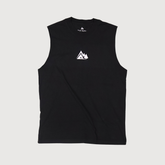



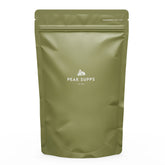

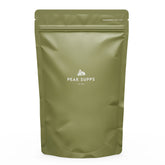

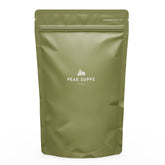

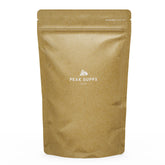

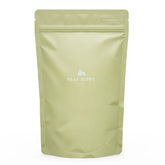


Leave a comment
Please note, comments need to be approved before they are published.